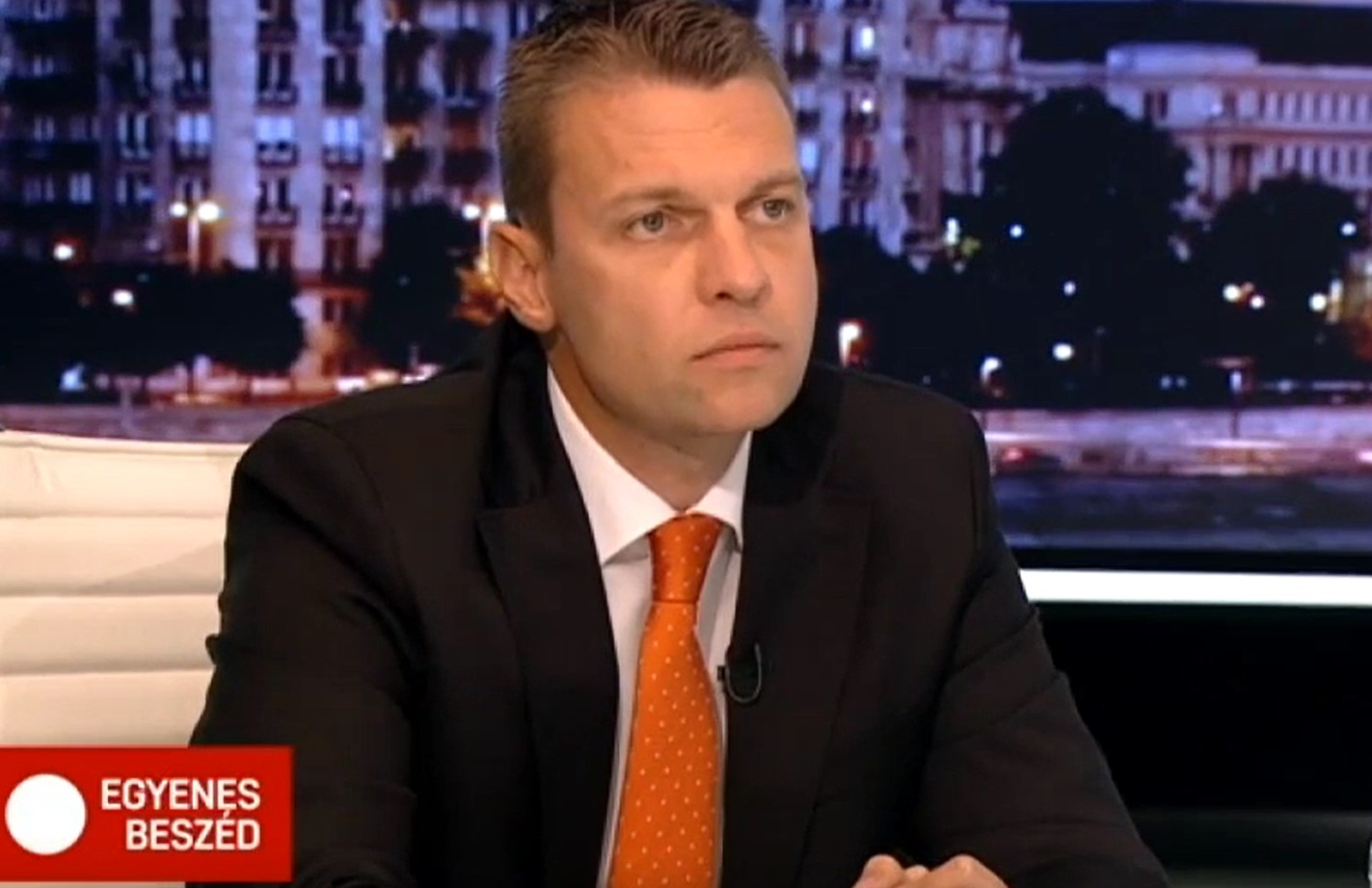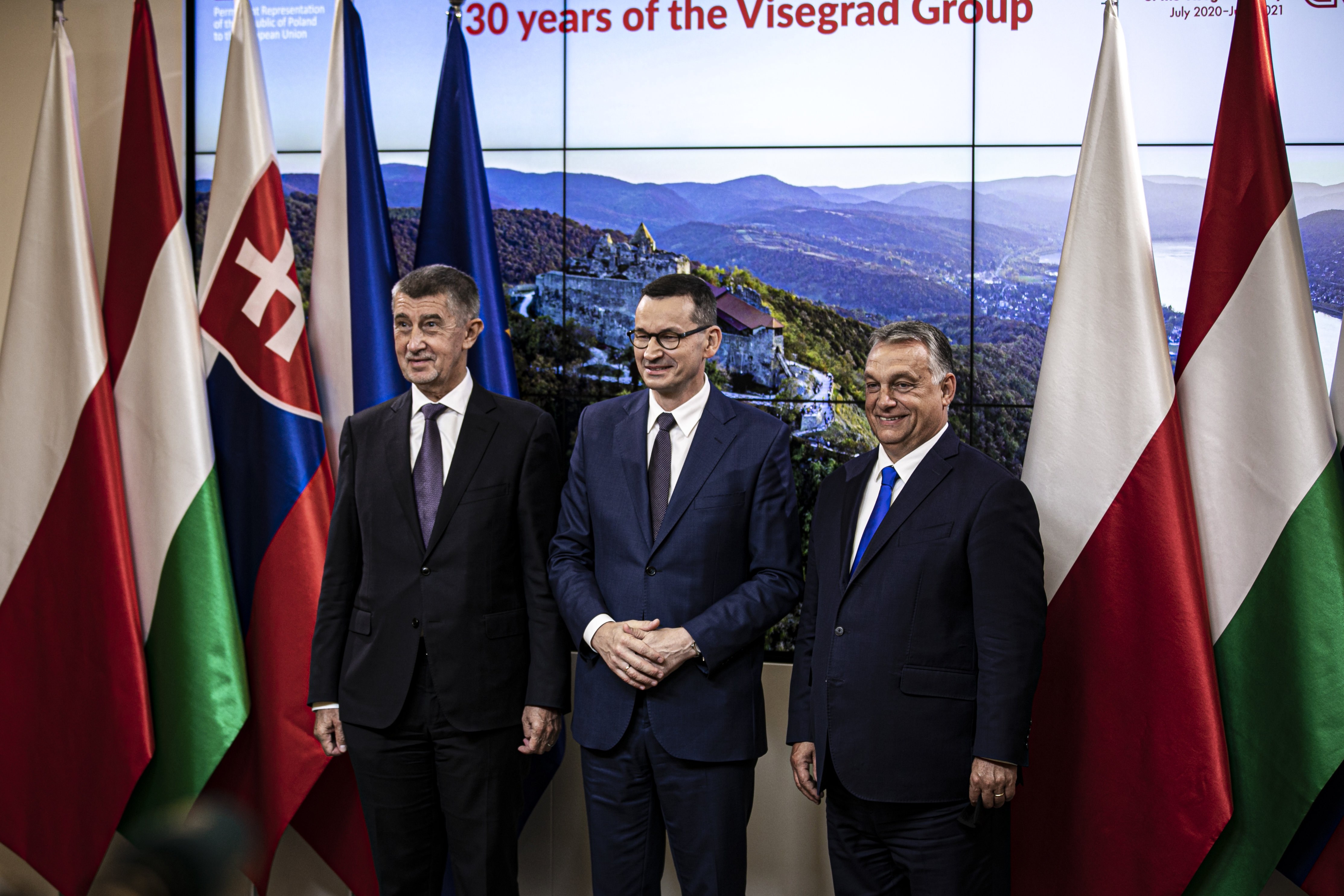Foreign Ministry sought information on journalists' foreign trips
- Stay updated on the latest news from Hungary by signing up for the free InsightHungary newsletter:
The Ministry of Foreign Affairs asked Hungarian embassies in EU states for information related to trips taken to host countries by Hungarian journalists, according to a leaked document acquired by Telex.
The letter, sent in June by MFA deputy under-secretary József Magyar, asked the embassies to provide information on work trips, training courses or study visits by Hungarian journalists, as well as when the trips occurred and "what sort of media outlets' representatives have participated and what sort of local media outlets have they visited."
In response to Telex's questions on why such a list was necessary to compile and what purpose the information would serve, the ministry wrote that it "does everything necessary to avoid foreign influence in Hungarian internal matters, and in our experience, the Soros-network is usually behind such attacks."
In an interview on ATV, MFA state secretary for communication Tamás Menczer acknowledged that such a document had leaked, saying, "It looks like the Minister of Foreign Affairs hasn't fired enough people, because documents are still leaking." Menczer denied that the ministry was compiling a list of journalists, but claimed that "Soros organizations" such as Transparency International were cooperating with embassies in Budapest to organize training courses abroad.
"I was curious, because it's my job in the Foreign Ministry to deal with political issues, and I consider it a political issue if George Soros is financing media courses for left-wing journalists," Menczer said.
Responding to Menczer's comments, Transparency International pointed to its mentor program which provides training opportunities for students interested in journalism. The program, the organization wrote, is in cooperation with the embassies of the United States, Finland, France, the Netherlands, Germany, Norway and Switzerland, which in some cases support study trips for journalism students.
V4 leaders reject European Commission's migration plan
At a meeting with European Commission President Ursula von der Leyen in Brussels on Thursday, the leaders of Hungary, Poland and the Czech Republic rejected the migration policy overhaul the commission proposed on Wednesday. (Slovakia was represented by the Prime Minister of Poland at the meeting.)
The commission's plan, which would introduce a system of "mandatory solidarity" for all EU member states, proposes that those countries which do not want to accept a mandatory resettlement quota for asylum seekers could choose to execute and finance the deportation of people whose asylum requests have been rejected.
The plan also called for boosted border security and faster processing of asylum applications.
Following the meeting with Von der Leyen, Prime Minister Viktor Orbán said that the EU was trying to manage migration rather than stopping it, and argued that no asylum seekers should be allowed to cross into Europe without proper documentation. The EU should build refugee camps outside of Europe's borders, he said, and vowed that he would not accept any common asylum regulations that were not in line with Hungary's position on migration. (International law requires countries to process all applications for asylum submitted at their borders.)
Czech Prime Minister Andrej Babis said he agreed with Orbán, adding that he would not accept a quota for accepting or deporting asylum seekers.
The European Commission said it had negotiated on the plan with all member states before making it public. But in addition to the V4 countries, the governments of Austria, Slovenia and Italy have expressed their dissatisfaction with the plan.
Thousands of fans to travel to Hungary for Thursday's Super Cup match in Budapest
The 2020 UEFA Super Cup will be held at the Puskás Aréna in Budapest Thursday as cases of the coronavirus in Hungary continue to break records and the number of deaths rise.
The football match between Bayern München and Sevilla will be the first UEFA tournament match played before spectators since the outbreak of the coronavirus in Europe.
Despite Hungary's border closures, 3,000 spectators from each team's supporters will be permitted into the country if they present a negative PCR test and leave the country within 72 hours. Some 2,100 German fans are expected to travel to Hungary for the match, despite the German government classifying Budapest as a high-risk area due to sharp increases in coronavirus cases. Germans returning home from Budapest will be required to enter quarantine.
Sevilla forfeited 2,500 tickets to the match, and said it would only bring 500 supporters.
The head of the Bayern München club Karl-Heinz Rummenigge told SkyTV that the club would cover the costs of PCR tests for fans traveling to Budapest for the match. The club's trainer Hansi Flick said he didn't agree with the decision to allow spectators at the match. "It's the kind of thing you can't completely understand, but we don't make the decisions," he said.
German television stations Sky and DANZ announced that for health and safety reasons they would not send journalists to Budapest to provide live commentary of the match.
The UEFA has decided that 30 percent of the 67,215-seat arena can be occupied by spectators. In a statement, the president of the European football association called the match in Budapest a "pilot test" for bringing spectators back to future playoff matches.
Hungary faces lack of specialists and technicians to operate ventilators, doctors say
Prime Minister Viktor Orbán has repeatedly emphasised that the government is prepared for the second wave of the coronavirus, saying the country is "armed to the teeth."
While the government purchased some 16,000 ventilators at a cost of €842 million, spending far more than any other European country, there is a serious lack of specialists to operate them and care for intensive patients, doctors say. Estimates by some doctors put the number of specialists at around 2,000.
"It is not the number of beds or ventilators that hinders the healing of seriously ill people, but something that cannot be obtained for all the money in the world: the low number of suitable professionals," Dr. Nóra Máté-Horváth wrote in an open letter.
In a video posted to his Facebook page last week, Orbán visited a hospital where he spoke with the on-duty doctor. Orbán cut the doctor off as he explained that there was no lack of ventilators but of technicians to operate them.
Last week's decision to fix an official price for coronavirus tests at HUF 19,500 (€54) could lead to a decrease in the number of tests completed, as many private clinics discontinue testing to avoid losses. 444 found ten clinics which announced they would discontinue or suspend testing in response to the imposition of the official price fix.
The Hungarian government purchased more than 2 million coronavirus tests at an average cost of HUF 4,689 (€13) per test, according to documents obtained through a freedom of information request by Socialist MEP István Ujhelyi.
Testing has increased substantially in recent weeks from 2-4,000 daily tests completed in summer to 8-12,000 since early September. Still, only around a quarter of these tests are conducted by the state, while the rest are performed by private clinics at the patient's own expense.
Several of the government's advisors on the pandemic have urged increased testing, arguing it is important to assess its spatial and social extent while isolating those infected, breaking the chains of infection. Hungary's chief medical officer Cecilia Müller has argued that mass testing is not necessary since it does not prevent the spread of the virus.
Telex announces staff of 70 journalists after receiving 200 thousand euro donation from Czech media group
A Czech media group said it will donate €200,000 in support of new independent news site Telex, launched by former journalists of Index.hu who resigned from the outlet en masse in July over concerns their independence was under threat.
The donation comes as Telex conducts a crowdfunding campaign to finance the new outlet's start-up costs. More than 33,000 people have donated to the site so far.
Economia, one of the Czech Republic's largest media groups, publishes the financial daily Hospodarske Noviny and weekly magazine Respekt. In a statement, chair of the board at Economia Zuzana Reznickova said, “Telex’s commitment to delivering outstanding journalism, particularly at a time when it is most needed, resonated strongly with us.”
The group will reportedly not hold any stake in Telex in exchange for its financial support.
On Wednesday, Telex released a list of 70 journalists that will work at the outlet. The list of names contains mostly journalists that resigned from Index in July after the firing of the site's editor-in-chief Szabolcs Dull.
Telex editor-in-chief Veronika Munk earlier said the new outlet, which will be financed by reader contributions, would not be able to provide work for all of the nearly 90 journalists who resigned from Index.



